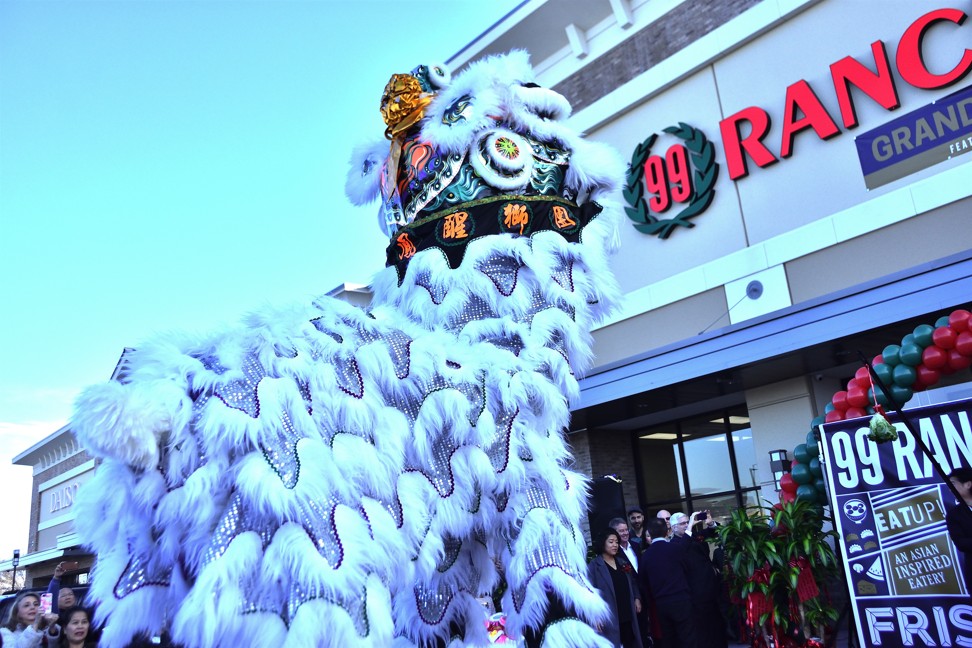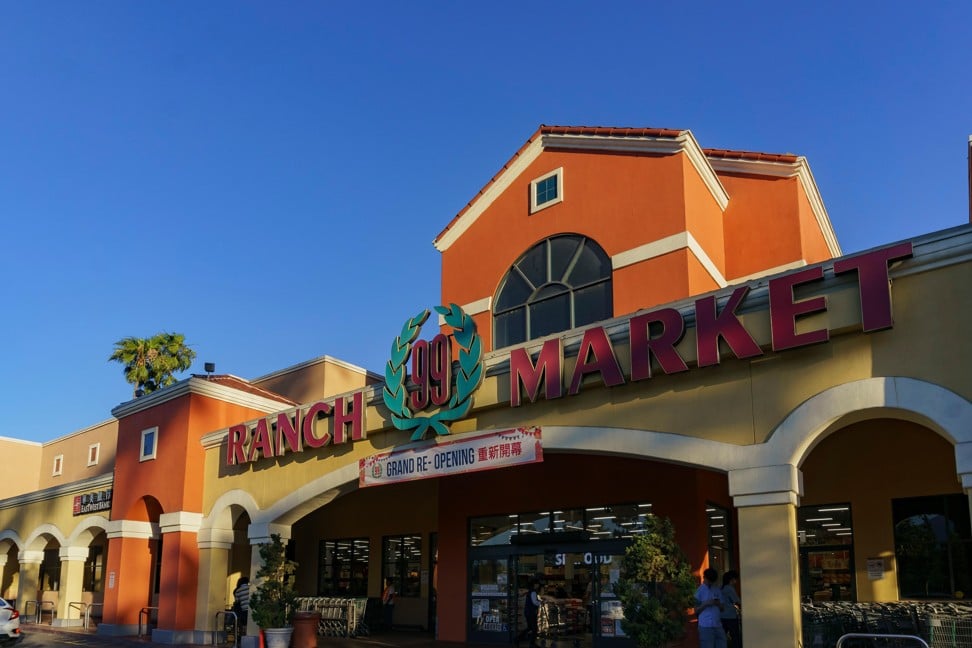The story of 99 Ranch Market, largest Asian supermarket chain in US
Since its first store opened in 1984 in Westminster, California, 99 Ranch Market has become ubiquitous in America’s largest Asian communities
Founder Roger Chen, then a recent arrival from Taiwan, wanted the familiar sounds, smells and food from home in an American grocery environment
Charley Lanyon
Published: 6:00am, 11 Mar, 2019

Produce from all over the world at the US-based Asian supermarket chain 99 Ranch Market.
Shoppers in the United States are spoiled for choice when it comes to grocery options. Massive supermarkets, discount outlets, mom and pop stores, high-end “yuppy marts” and ethnic markets of all stripes proliferate in even the smallest towns.
But for many of the country’s 21 million Asian-Americans, grocery shopping has always meant one thing: a trip to 99 Ranch Market.
The grocery store chain is ubiquitous in America’s largest Asian communities. Other markets tend to cater to the needs of niche Asian communities, with smaller stores selling South Asian, Southeast Asian and Japanese goods, for example. But only 99 Ranch and its sole competitor – the Korean-American H Mart – serve the needs of the diverse breadth of the Asian-American community.
99 Ranch is the largest Asian supermarket chain in the US and its customer base continues to grow. But it was not always this way.

A dragon dances at the grand opening of a 99 Ranch Market.
The story of 99 Ranch Market begins in 1984, in Westminster, California, outside Los Angeles. Then, as now, Westminster was best known for its large Vietnamese population. Nevertheless Roger Chen, a recent arrival from Taiwan, decided to open his first market there. (Originally it was called 99 Price Market, a name which later changed to what is known today.)
“He missed his hometown – the familiar sounds, the smells and the food,” says Alice Chen, CEO of 99 Ranch Market and the founder’s daughter. “He wondered why he couldn’t shop for those foods and brands that were familiar from home here, in a grocery environment similar to his local American supermarket.”
Alice Chen says that from the very beginning her father was first and foremost a businessman. “He saw a need, identified a gap, and thought to fill it.”
Thanks to an exploding Asian population in California, the expansion of 99 Ranch Market across the state was rapid. Then in 1998, Chen opened his first store outside California, in Seattle, Washington. Today there are 52 stores in seven states and the future for 99 Ranch Market looks bright.
The US Census Bureau put the Asian-American population at more than 21 million in 2016, a significant increase from the estimate of just 3.5 million in 1980 – four years before Chen opened his first outlet.

A 99 Ranch Market store at the San Gabriel Square shopping mall in Los Angeles, California.
The number of arrivals from Asia continues to rise, and they all come hungry for the tastes of home.
The company is still in the hands of the Chen family, including Alice Chen and her brother, Jonson Chen. Like his father, Jonson is a businessman. He has made it his mission to modernise the company from top to bottom, and thanks to his degree from Wharton Business School, is keeping his family business growing and competitive.
“After school I started in Northern California, getting to know the family business, working through all the levels there,” he recalls. “My father wanted me to know all the various departments. I even worked at the markets stocking shelves during the summer when I was in high school. When I started in the early 2000s, a lot of the technologies in retail were changing.”
The first step he took was to computerise the operations, moving the whole system onto what was then frontline technology: Windows Vista. These days, 99 Ranch is a cutting-edge retailer, offering online shopping and hosting a virtual community meeting place for sharing recipes, advertising the store’s regular customer contests, and posting about sales and special offers nationwide.
We work with a variety of vendors big and small. We literally have the guys who produce fresh tofu and soy milk every day and deliver it in a minivan, all the way through [to] the big Japanese conglomerates
Jonson Chen
The challenges of running the 99 Ranch network, and keeping it stocked with the widest range of goods possible, has been a monumental undertaking. Customers choose the stores because they are looking for ingredients they can’t find anywhere else. They are a growing and increasingly diverse bunch from many backgrounds and with vastly different food and grocery traditions. Many recent immigrants are familiar with products from their home countries and unwilling to compromise when it comes to authenticity.
“We’re a pan-Asian grocer. We’re not just for a specific Chinese customer base,” Jonson Chen says. “Filipino, Thai, Vietnamese, people from all of Southeast Asia have found our market accessible, and that is why we’re so unique.”
Chen also has to take into consideration what he calls the “generation gap”. While his father catered mostly to first-generation Asian-American immigrants, these days many younger shoppers at 99 Ranch have grown up in the US with a taste for Western food and ingredients, as well as the Asian fare their parents dished up. At 99 Ranch, think sauerkraut flavour instant noodles or wasabi flavour potato crackers.







 Reply With Quote
Reply With Quote